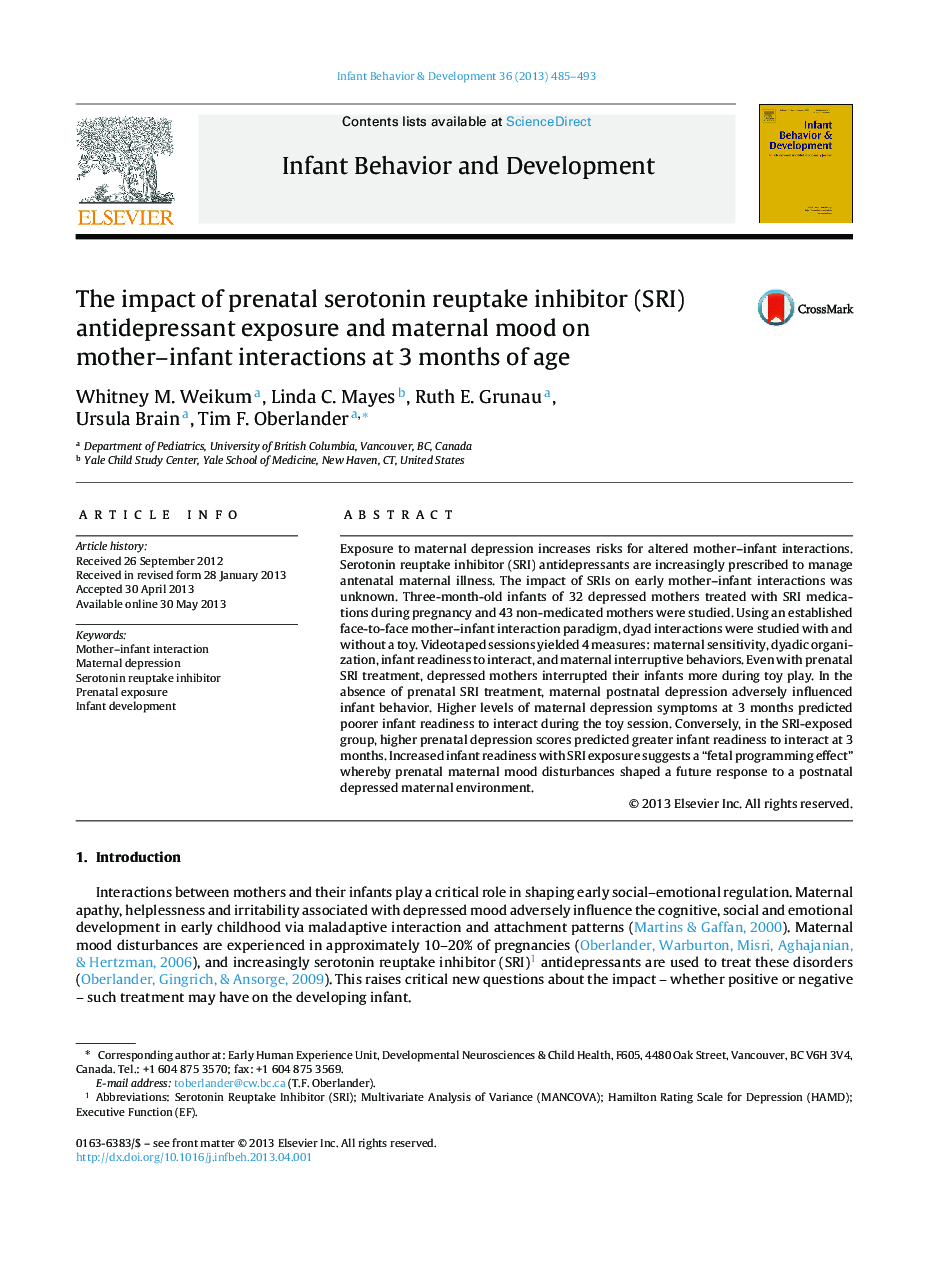| Article ID | Journal | Published Year | Pages | File Type |
|---|---|---|---|---|
| 10452698 | Infant Behavior and Development | 2013 | 9 Pages |
Abstract
Exposure to maternal depression increases risks for altered mother-infant interactions. Serotonin reuptake inhibitor (SRI) antidepressants are increasingly prescribed to manage antenatal maternal illness. The impact of SRIs on early mother-infant interactions was unknown. Three-month-old infants of 32 depressed mothers treated with SRI medications during pregnancy and 43 non-medicated mothers were studied. Using an established face-to-face mother-infant interaction paradigm, dyad interactions were studied with and without a toy. Videotaped sessions yielded 4 measures: maternal sensitivity, dyadic organization, infant readiness to interact, and maternal interruptive behaviors. Even with prenatal SRI treatment, depressed mothers interrupted their infants more during toy play. In the absence of prenatal SRI treatment, maternal postnatal depression adversely influenced infant behavior. Higher levels of maternal depression symptoms at 3 months predicted poorer infant readiness to interact during the toy session. Conversely, in the SRI-exposed group, higher prenatal depression scores predicted greater infant readiness to interact at 3 months. Increased infant readiness with SRI exposure suggests a “fetal programming effect” whereby prenatal maternal mood disturbances shaped a future response to a postnatal depressed maternal environment.
Keywords
Related Topics
Life Sciences
Neuroscience
Behavioral Neuroscience
Authors
Whitney M. Weikum, Linda C. Mayes, Ruth E. Grunau, Ursula Brain, Tim F. Oberlander,
